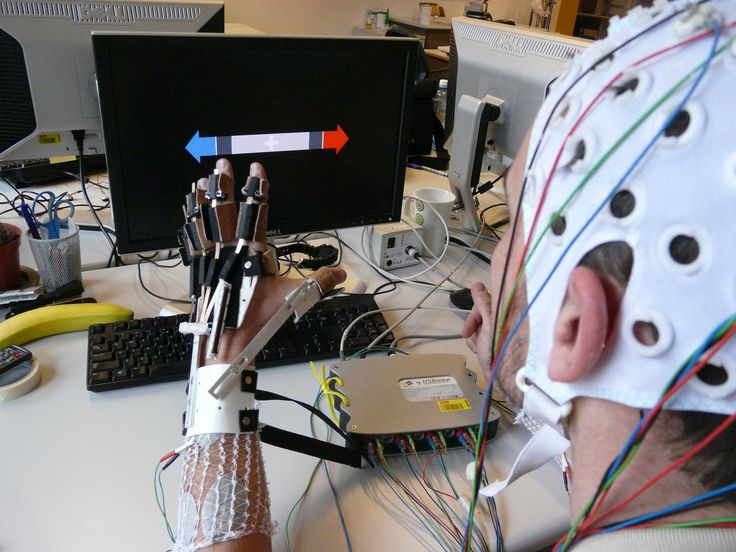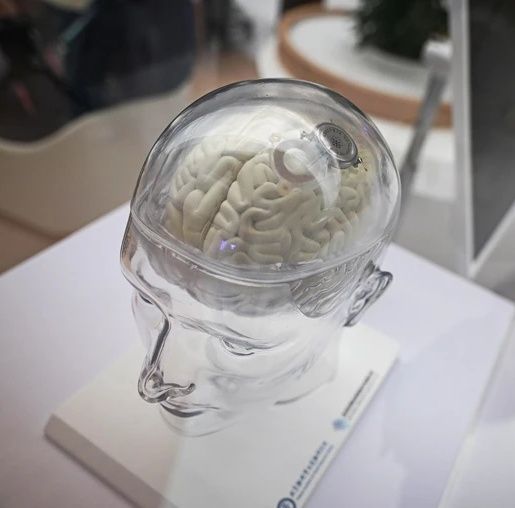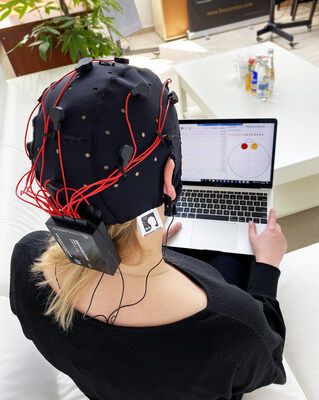The Ethics of Brain-Computer Interfaces: When Technology Meets the Mind

A decade ago, the idea of controlling a computer with your thoughts belonged firmly in science fiction. Today, brain-computer interfaces (BCIs) are edging closer to mainstream reality. Companies like Neuralink, Synchron, and Kernel are building devices that can read and interpret brain signals—allowing humans to move a cursor, control a robotic limb, or even type sentences using only their minds.
The possibilities are staggering. BCIs could help paralyzed patients communicate, restore mobility to those with spinal injuries, and open entirely new ways for humans to interact with machines. But with every breakthrough comes a wave of ethical questions that feel uniquely urgent: What does it mean when technology can access your thoughts? Who owns your brain data? And where do we draw the line?
From Medical Miracles to Commercial Frontiers

image credit: pinterest
The most compelling applications of BCIs today are medical. In 2022, a team in Australia’s Synchron trial helped a patient with motor neurone disease send tweets simply by thinking the words—an achievement that made global headlines. In the United States, researchers have enabled people with locked-in syndrome to “speak” again through direct neural signals.
These are life-changing interventions. For someone paralyzed from the neck down, the ability to communicate without speech or movement can mean the difference between isolation and connection. BCIs, in these cases, are not luxuries—they are lifelines—but the technology is rapidly moving beyond the clinic.
Elon Musk’s Neuralink has been open about its consumer ambitions, envisioning a future where BCIs are as common as smartphones, used for gaming, communication, or even enhancing memory.
The company’s February 2024 announcement that it had successfully implanted its “Telepathy” device in a human volunteer brought these ambitions sharply into focus.
This shift from medical necessity to consumer convenience is where the ethical terrain becomes more treacherous.
The Privacy of Thought
We already live in a world where our clicks, locations, and purchasing habits are tracked and monetized. With BCIs, the stakes are exponentially higher: they could, in theory, access patterns of thought and emotion.
Even if current devices can’t “read minds” in a literal sense, they can detect neural activity related to certain intentions or decisions—such as the thought to move a finger or select a letter. Over time, with enough data, machine learning systems could potentially decode more complex mental states. That data, stored on servers, could become a goldmine for advertisers, governments, or malicious actors. The notion of “thought privacy” isn’t just philosophical—it could soon be a legal necessity.
In 2021,Chile became the first country to propose a “neurorights” bill, aiming to protect brain data as a basic human right. The legislation, still evolving, recognizes five core neurorights, including mental privacy, cognitive liberty, and equal access to cognitive enhancement.
Other nations are watching closely, but global regulation is still in its infancy. The European Union’s AI Act, for instance, does not yet specifically address neural interfaces. In Africa, data protection frameworks like Nigeria’s NDPR (Nigeria Data Protection Regulation) do not explicitly cover neural data, leaving a significant policy gap.
Consent and Control

image credit: pinterest
One pressing concern is informed consent. With any invasive technology, there’s a risk that users might not fully understand what they’re agreeing to—especially when brain data could be used for purposes beyond the original intent.
In South Africa, for example, stroke rehabilitation programmes at universities like Stellenbosch and Wits are exploring non-invasive BCIs to help patients regain motor function. But without robust public awareness campaigns and clear legal protections, there is a risk that sensitive brain data could be repurposed by private companies—whether for research monetization or even targeted marketing.
In Western contexts, similar debates are unfolding. The U.S. Food and Drug Administration (FDA) requires rigorous testing for implanted medical devices, but consumer-grade BCIs—particularly wearable, non-invasive headsets sold for gaming or productivity—may not face the same oversight. That means a headset marketed for “focus tracking” could, in theory, collect far more intimate neural signals without the user fully realising it.
Latest Tech News
Decode Africa's Digital Transformation
From Startups to Fintech Hubs - We Cover It All.
The key ethical question is: Who ensures the data is secure? Who audits the algorithms interpreting your thoughts? And, crucially, can you ever fully retract neural data once it’s been captured?
The Enhancement Debate
BCIs also raise thorny questions about human enhancement. If a device can boost memory, accelerate learning, or provide direct access to the internet, does that create an unfair advantage? Would employers start expecting workers to “upgrade” their brains for productivity?
Bioethicists warn of a two-tier society: the cognitively enhanced and the non-enhanced. The World Economic Forum has already raised concerns that if cognitive enhancement technologies are rolled out without equitable access, global inequality could deepen sharply.
In low-income economies, the risk is compounded. For example, in many African countries where healthcare systems are already under strain, BCIs could remain out of reach for all but the wealthy, reinforcing existing social divides. Meanwhile, those without access could find themselves excluded from certain jobs or educational opportunities.
A Lesson from AI Ethics
The ethical debates surrounding BCIs echo those around artificial intelligence. With AI, society rushed ahead with deployment—think facial recognition and algorithmic hiring—before fully grappling with bias, transparency, and accountability. In many cases, regulations arrived only after harm was documented.
BCIs present a rare opportunity to get ahead of the curve. But that requires governments, researchers, civil society, and the public to engage now, not after mass adoption. The Chilean neurorights initiative is one starting point; the OECD’s principles on AI could also be adapted to the neural interface context.
Guardrails for the Future
Experts recommend several steps:
Establish neurorights: Enshrine cognitive liberty and mental privacy in law, as Chile has begun to do.
Strengthen data protections: Treat neural data as highly sensitive, with strict limits on collection and sharing.
Ensure accessibility: Prevent BCIs from becoming tools that widen inequality.
Demand transparency: Require companies to explain how brain data is processed and for what purpose.
The Human Question
Latest Tech News
Decode Africa's Digital Transformation
From Startups to Fintech Hubs - We Cover It All.
At the heart of the BCI debate is a deeper question: How much of our inner life should we share with machines? Technology that connects brain and computer could be a profound extension of human capability—or an equally profound intrusion.
Neuroscientist Rafael Yuste, a leading voice in neurorights advocacy, has warned that BCIs could be “the final privacy frontier.” Once crossed, it may be impossible to re-establish the boundary between self and system.
BCIs may ultimately help millions live fuller, freer lives. But if we rush into this future without strong ethical foundations, we risk trading one form of limitation for another: swapping the barriers of the body for the vulnerabilities of the mind.
Conclusion:
Brain-computer interfaces offer unprecedented possibilities, but they also raise questions that strike at the core of human identity, autonomy, and privacy. The challenge is to harness their potential without crossing ethical lines — a task that demands foresight, regulation, and a societal consensus on where those lines should be drawn.
You may also like...
Super Eagles Fury! Coach Eric Chelle Slammed Over Shocking $130K Salary Demand!
)
Super Eagles head coach Eric Chelle's demands for a $130,000 monthly salary and extensive benefits have ignited a major ...
Premier League Immortal! James Milner Shatters Appearance Record, Klopp Hails Legend!

Football icon James Milner has surpassed Gareth Barry's Premier League appearance record, making his 654th outing at age...
Starfleet Shockwave: Fans Missed Key Detail in 'Deep Space Nine' Icon's 'Starfleet Academy' Return!

Starfleet Academy's latest episode features the long-awaited return of Jake Sisko, honoring his legendary father, Captai...
Rhaenyra's Destiny: 'House of the Dragon' Hints at Shocking Game of Thrones Finale Twist!

The 'House of the Dragon' Season 3 teaser hints at a dark path for Rhaenyra, suggesting she may descend into madness. He...
Amidah Lateef Unveils Shocking Truth About Nigerian University Hostel Crisis!

Many university students are forced to live off-campus due to limited hostel spaces, facing daily commutes, financial bu...
African Development Soars: Eswatini Hails Ethiopia's Ambitious Mega Projects

The Kingdom of Eswatini has lauded Ethiopia's significant strides in large-scale development projects, particularly high...
West African Tensions Mount: Ghana Drags Togo to Arbitration Over Maritime Borders

Ghana has initiated international arbitration under UNCLOS to settle its long-standing maritime boundary dispute with To...
Indian AI Arena Ignites: Sarvam Unleashes Indus AI Chat App in Fierce Market Battle

Sarvam, an Indian AI startup, has launched its Indus chat app, powered by its 105-billion-parameter large language model...
